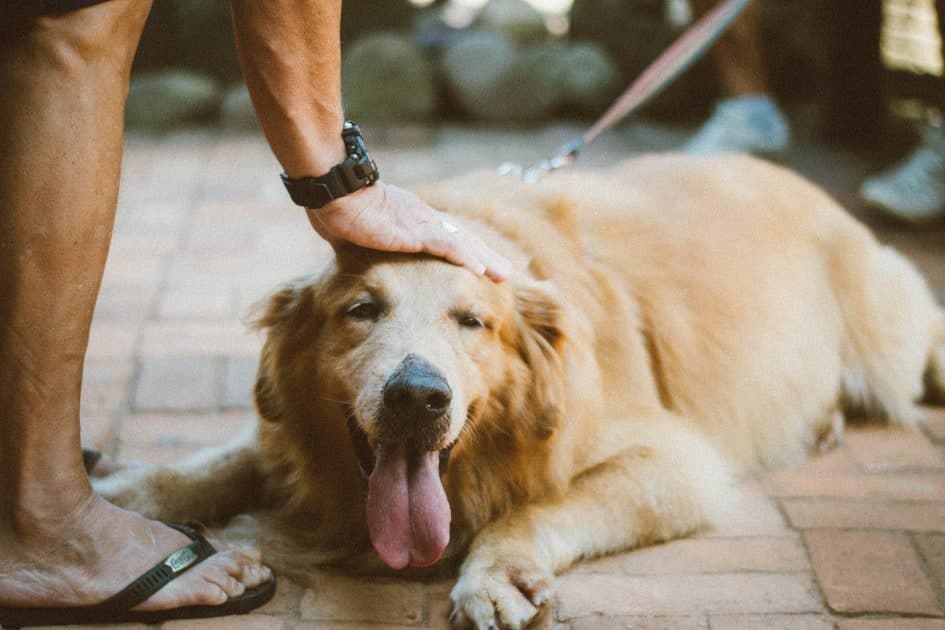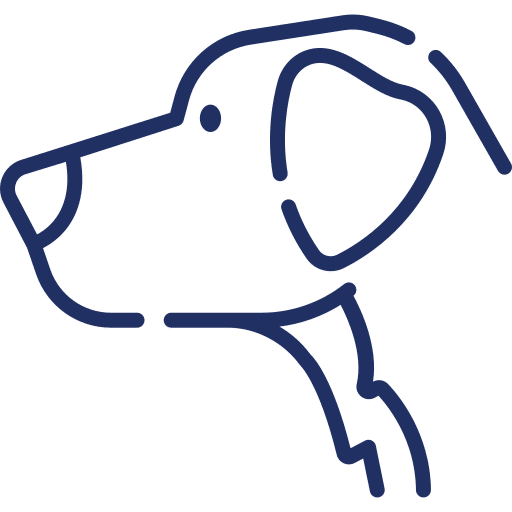

Can A dog Be Helped To Lose Weight Quickly?
Dogs can gain weight just like humans! So if you notice your dog's weight has increased, don't be alarmed. You can help your dog get back to the ideal weight so you can play fetch more and worry less about their health!
According to a 2018 study, almost 50 million canines in the U.S. are considered obese or overweight. Just as in humans, obesity in dogs is also tied to an astounding range of health problems. The ideal way to preventing weight gain is to keep a constant check on your dog’s food intake, exercise levels and monitoring any weight fluctuations. Even being aware of what your pup’s weight should be can help keep your pup’s health in check.
Although you should seek your vet’s advice when it comes to checking their ideal weight, another quick at-home way to evaluate your canine’s weight situation is to answer 3 questions:
- Does your canine have an hourglass body shape?
- Do you feel their ribs?
- Can you see their waist?
If your answer to all three questions were ‘no,’ then it’s time you pay attention to your dog’s weight.
For dogs, as for humans, weight-loss boils down to two main things: food and exercise. Here are a few ways to help a dog lose weight fast.
Keep a Check on Your Dog’s Daily Calorie Intake
Most people choose not to count calories as a guide to what they should and shouldn’t eat. The act of maintaining a healthy routine is often more than enough for humans to keep their weight in check. However, it is high time dog parents realize that the same principle doesn’t apply to their beloved canine. Establishing a firm standard for how much a dog should eat is essential to their long-term weight management. This means that it is crucial to keep a check on the amount of calories your dog consumes every day.
Relying on feeding guidelines given at the back of a pet foods isn’t the best idea since they are usually based on the active lifestyle of active adult dogs. It is essential to consider that many factors determine your dog’s dietary requirements, including their size, breed, activity level, and whether or not they are neutered or spayed.
A standard kibble-bag feeding range can be too general for your pup, which can lead to dog parents over-feeding their pup based on the vaguely recommended portion sizes. You can determine the ideal caloric intake of a dog by considering a few factors, including their body condition score, muscle condition score, lifestyle, and medical conditions.
Break Up Meals
Breaking up one big meal into smaller portions can be a great way to get your dog’s weight under control fast. This can be done by simply taking your dog’s daily food and splitting it up into three to six helpings spread throughout the day. Giving your dog several, small meals means that they will need more energy to digest, leading them to burn more calories.
Also, small meals dispersed throughout the day can help keep your pup’s insulin levels in check, reduce spikes in their appetite, and keep their tummy full for most of the day. Once your canine’s metabolism starts functioning effectively, it won’t take too much time for your pup to drop the excess pounds.
Focus on Food Quality
Besides the daily caloric intake, another crucial part of weight loss is feeding your dog the right foods. The type of food you feed your pup plays a significant role in their weight fluctuations. Giving your pup lower-carb, whole, and fresh food is a great way to keep them healthy.
Most processed dog foods contain carb-based fillers. If you don’t believe us, go over the ingredients mentioned on the label. Dogs generally need a balanced diet consisting of equal amounts of protein and carbohydrates. However, if you want to help your dog lose weight fast, you must keep their carb intake in check.
The ideal option is to provide your dog with a fresh diet that gives them quality protein along with fiber and moisture to keep them satisfied. Nutrient-dense and bio-available food will keep your canine healthy and reduce their overall food intake.
Treats Count
If your dog is gaining weight despite its healthy diet, regular exercise, and good overall health, it’s time to focus on the treats they’re getting. An excellent way to help your dog drop those few extra pounds is by controlling or reducing their treat intake.
Nobody wants to deprive their furry little friends of the joy and excitement of having treats, but it is critical to keep a close eye on how many treats a dog has in a day and the number of calories those treats contain. Highly processed, high-calorie and high-carb treats are a significant source of weight gain. Help your four-legged friend lose weight by giving them healthy, single-ingredient treats, such as fresh fruit and veggies.
Increase Physical Activity
Although food is a major part of weight loss, no weight loss plan is complete without exercise. The most important physical activity for a dog is walking. Regular walks help exercise your pup’s body while providing them with much-needed mental stimulation. Although the recommended minimum amount of exercise a day is 20 minutes, it can vary based on your dog’s breed and overall health.
For most dog breeds, an hour of daily exercise is often more than enough. However, if you want your dog to lose weight fast, increase the amount of the daily exercise they’re currently doing. In case that’s none, or barely any, short intervals of walking are a good start.
Check for Any Medical Condition
You may be giving your dog a healthy restricted-calorie diet and engaging him in physical activity every day but still aren’t having any luck helping them lose weight. Well, in such cases, a visit to the vet is imperative. Weight gain and excessive exhaustion are symptoms of conditions such as Cushing’s Syndrome or hypothyroidism. Only a vet can help you rule out any medical conditions that may be keeping your dog from losing weight.
The Bottom Line
Weight loss doesn’t happen overnight. Your dog has probably put on weight over time, and therefore, losing weight will also take time. Expecting your dog to lose weight too fast can be extremely unhealthy for them. Work with your vet to create a weight loss plan to make sure your dog loses weight at an appropriate pace and help your dog develop good habits that are applied consistently.
Discover how to create a joyful, healthy home for your pet.
Subscribe to your weekly rundown of practice, real life ideas and training tips straight to your inbox.


